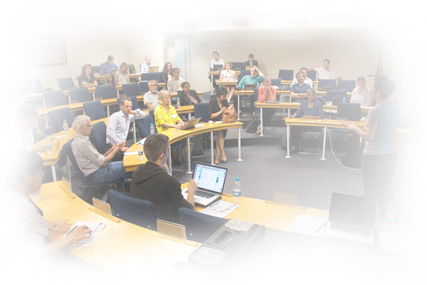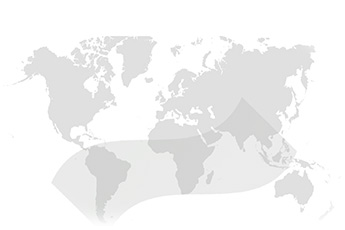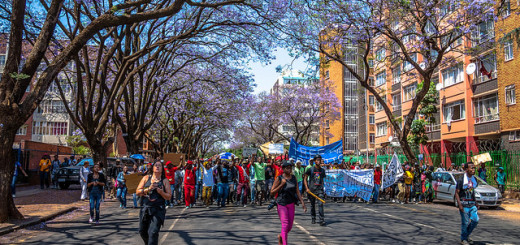Picture made available by Tulane Public Relations under a CC BY licence.
In this post Sarah Goodier reviews the Open Learning Policy Framework for Post-school Education and Training, which was released for public consultation by the South African Minister of Higher Education and Training. Of particular interest is the definition of open learning and of the role OER is envisaged to play in the implementation.
The Open Learning Policy Framework
The South African Department of Higher Education and Training (DHET) on 7 April 2017. This Policy Framework was prepared in the context of DHET’s increasing commitment to open learning principles approaches and the need to expand access to education that is more flexible and cost-effective, bearing in mind the variety of both ICT availability and access in South Africa.
The release of this Policy Framework was the culmination of a lengthy process. The starting point for this Policy Framework began in February 2013 with DHET developing a Concept Note on open Learning in Post-School Education and Training. This provided a vision of open learning to address access and the needs of South Africa’s student body. Various consultations on this concept note with the Department of Basic Education (DBE), Department of Basic Education (SETAs), non-governmental organisations (NGOs) and tertiary institutions were held at both the provincial and national level, including workshops and seminars. This period of consultation resulted in a Concept Framework for an Open Learning System in Post-School Education and Training in South Africa. The recommendations made in this concept framework laid the groundwork for the 2014 White Paper for Post-school Education and Training. The next step was to develop, through extensive consultation, the draft Open Learning Policy Framework for Post-school Education and Training.
This Policy Framework document explicitly defines open learning, both independently from and intertwined with distance learning:
This Policy Framework document explicitly defines open learning, both independently from and intertwined with distance learning:
|
Open learning: An educational approach which combines the principles of learner-centredness, lifelong learning, flexibility of learning provision, the removal of barriers to access learning, the recognition for credit of prior learning experience, the provision of learner support, the construction of learning programmes in the expectation that learners can succeed, and the maintenance of rigorous quality assurance over the design of learning materials and support systems. Open distance learning: The use of distance education methods to support the realisation of open learning purposes and principles. (p. 363) |
Open Educational Resources (OER) are also explicitly mentioned in the Policy Framework as a trend with the potential to change education and are defined as “Any educational resources … that are published under an open licence and are available for use without an accompanying need to pay royalties or licence fees” (p. 363). It is hoped that using OER can be more cost-efficient in terms of operational and running costs.
The Policy Framework proposes several strategic objectives:
- Develop an enabling environment for open learning provision in the sector, including developing an open learning model and a National open learning system
- Apply open learning approaches in institutions, through encouraging different modes of delivery and institutionalising open learning
- Create a post-school distance education landscape based on open learning principles, by developing and implementing distance education models (where needed) and providing extensive support to distance learners, including for cross-border education
- Improve access to information and communication technology (ICT) as an enabler for distance education, assisting institutions to access and use appropriate digital technologies optimally and building staff ICT capacity
- Make high quality, shared teaching and learning resources available as OER, drawing from high-quality OER already available and assisting in the collaborative production by a network of educational institutions with support from educational support centres, access and reuse of high-quality resources via the National open learning system enabled by internet connectivity. Quality materials will be produced using a “develop a materials development model that will make use of content experts in institutions, academia and industry (where appropriate), coupled with experts in materials design and development” (p. 396 – 397).
The Policy Framework includes a commitment for DHET to “embed open learning in the national quality assurance system” (p. 387) and open learning approach will need to meet, with allowance for possible revision of the current quality standards for distance education to encompass innovative teaching and learning, the quality standards of the Quality Councils that already oversee other means of accredited education provision.
In the Policy Framework, DHET states its support for the “development of open learning opportunities as an integral part of the post-school education and training system” (p. 367) and not as an extra or add-on. This integral approach is echoed in the plans for funding. Funding for the implementation of the Policy Framework will to be incorporated in institution’s funding allocations, with DHET providing guidelines for the funding of open learning. The scale of the funding required, however, is not indicated in the Policy Framework document.
ROER4D’s Comments
The ROER4D Network Hub team under the guidance of PI Cheryl Hodgkinson-Williams and Communications Consultant, Sukaina Walji, contributed comments during the public consultation period as part of a consolidated response from the University of Cape Town to this Policy Framework. In particular ROER4D provided comments on the issue of how to ensure that materials developed under this policy could be released as OER by highlighting that the South African Copyright Act of 1978 (and subsequent amended versions) grants default copyright ownership over academics’ work-based creations to the institution. This has crucial implications for OER development because it reveals that there are two potential agents of OER activity, the educator (user/creator) and the institution (default copyright holder). The government would have to issue a directive to university management teams to clarify who would be the legal agent of OER production – the institution or the individual academics.
Another area of response concerned acknowledgement of the skills, infrastructure and capacity required to develop materials as OER especially collaboratively among institutions, but we reiterated that considerable upfront costs for developing skills and supporting the production of openly licensed materials was important as it would then enable any institution to reuse and localise materials going forward. Finally in relation to the notion of quality assurance of learning content, we suggested that the meaning of this be interrogated and that a drive towards a particular definition of ‘quality’ should align with the needs of producing locally relevant content for the South African higher education sector.
We are following progress of this Policy Framework as it advances through various forms and modes of consultation and while it is not clear if and when it will be implemented, the initiative represents a policy approach to how to leverage the opportunities of Open Education and OER for educational provision in the South African Higher Education sector. ROER4D will be highlighting the role of policy in OER adoption at the 2nd World OER Congress to be held in Slovenia in September 2017.






